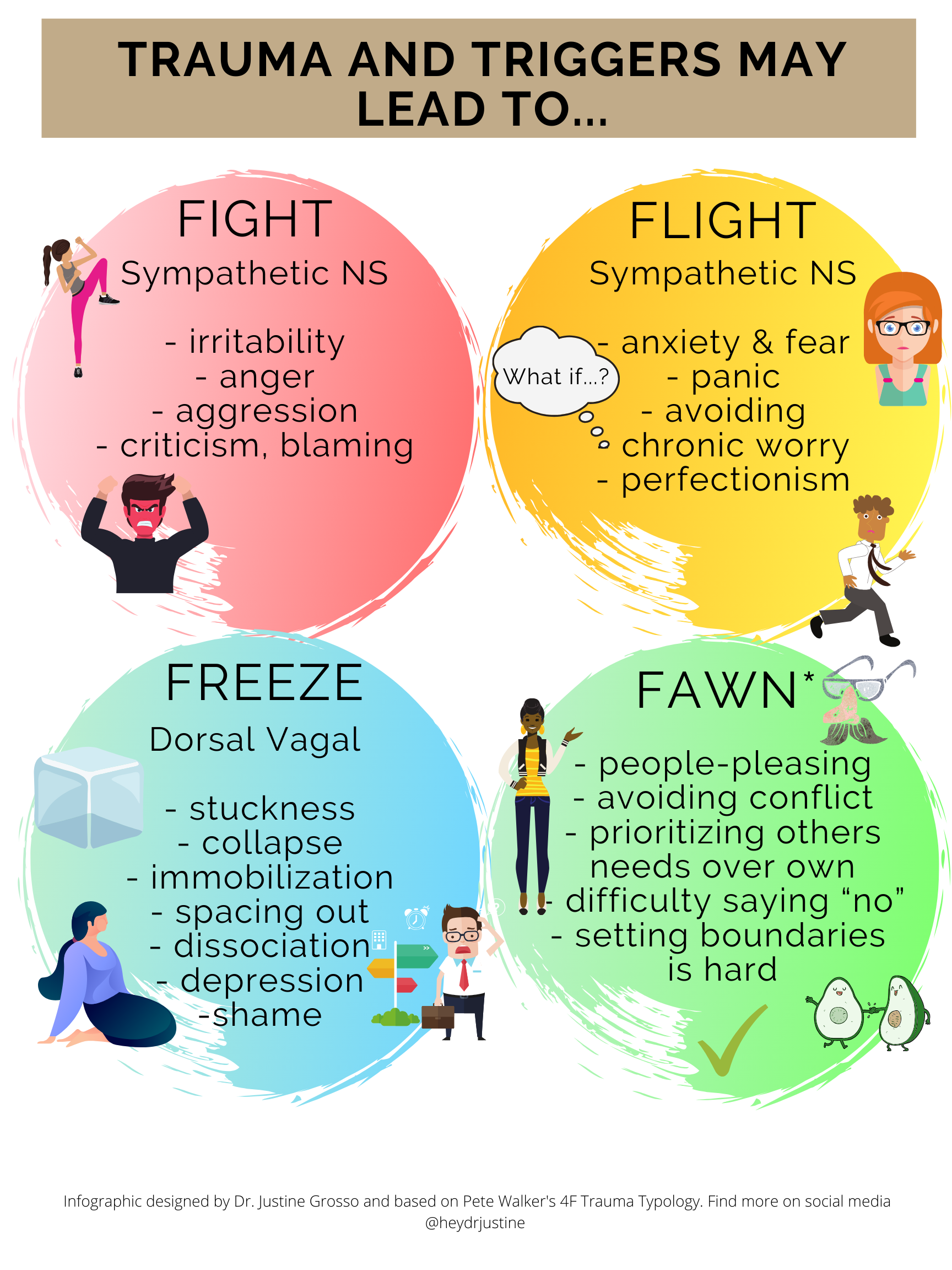Trauma Therapy in Chapel Hill, NC
Understanding Your Nervous System: Why Your Reactions Aren’t "Just in Your Head"
Have you ever wondered why you react to stress the way you do? Whether it's feeling anxious, shutting down, or people-pleasing, these responses are not personal flaws—they're deeply connected to your autonomic nervous system (ANS).
Your nervous system is shaped by past experiences, relationships, trauma, and even the cultural and societal systems you’ve been part of. It evolved to protect you from danger, meaning that trauma responses and mental health challenges are not signs of something “wrong” with you. Instead, they are adaptive patterns your body has learned to keep you safe.
When you’ve experienced a traumatic event or multiple stressful experiences, you may experience these reactions after someone or something reminds you of the past trauma. By understanding how your nervous system works, you can bring awareness to these automatic reactions and take meaningful steps toward healing.
The Four Nervous System Reactions to Triggers
Your body’s reaction to stress falls into four primary nervous system states:
1. Fight Response (Sympathetic Activation)
When faced with stress, your body prepares to fight or defend itself. This may look like:
Irritability or anger
Criticizing or blaming others
Feeling aggressive or confrontational
2. Flight Response (Sympathetic Activation)
If your nervous system perceives danger, it may try to escape. This can manifest as:
Chronic anxiety and worry
Perfectionism and overworking
Panic attacks or avoiding difficult situations
3. Freeze Response (Dorsal Vagal Immobilization)
When neither fight nor flight feels possible, the body may shut down. Signs of freeze mode include:
Feeling stuck or numb
Trouble getting out of bed
Dissociation or zoning out
Experiencing shame or depression
4. Fawn Response (Blending of Ventral & Dorsal Vagal States)
To maintain connection and avoid conflict, your body may resort to fawning, which can look like:
People-pleasing
Difficulty setting boundaries
Fear of saying “no”
Losing your sense of self in relationships
Healing Your Nervous System
Recognizing these responses is the first step toward nervous system regulation and healing. Through somatic therapy, mindfulness, and nervous system-informed care, you can learn to shift out of survival mode and into a state of safety, connection, and resilience. As you continue on your journey, psychotherapy can help you "widen your Window of Tolerance (coined by Dr. Daniel Siegal).
The Window of Tolerance model helps us understand both normal nervous system development and the impact of trauma on our tolerance for arousal/activation in our body. The idea here is that something threatening or dangerous happens and your nervous system reacts (with one of the 4 reactions listed above) to help you survive it. Your nervous system may get stuck in high alert (fight/flight) or immobility (freeze) or flip between both. Essentially the Window of Tolerance may narrow, causing you be easily triggered to shoot out of the “window” upon encountering new triggers.
At Mindbody Therapy & Wellness in Chapel Hill, NC, we specialize in holistic, trauma-informed therapy that helps you work with your nervous system, not against it. Whether you struggle with anxiety, burnout, or relationship challenges, our approach empowers you to heal at a deep, body-based level.
Ready to Feel More Flexible and Regulated?
If you’re looking for compassionate support on your healing journey, we’re here to help. Contact us today to schedule a consultation and start building a more balanced, resilient nervous system.


